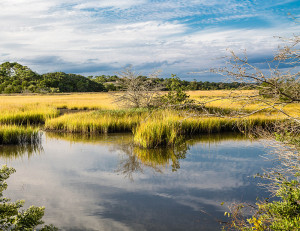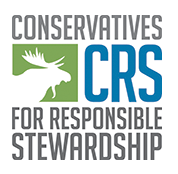The Environmental Protection Agency (EPA) and the U.S. Army have issued a rulemaking that finally clarifies the scope of the Clean Water Act in the wake of a split 2006 Supreme Court decision (Rapanos v. United States) that muddied the law’s interpretation. and has made protecting our nation’s vital waters and wetlands more difficult.
The new rule offers a prudent, balanced and science-based interpretation that preserves the integrity of the Clean Water Act—which was passed in 1972 by a wide bi-partisan majority of Congress to protect the health of our nation’s water resources.
“Clean water is a priority for every American, and this rule merits the same bi-partisan support that the Act itself received. This rule also deserves support—especially from conservatives—because it better protects wetlands, which is fiscally responsible and protective of downstream property rights,” said David Jenkins, President of Conservatives for Responsible Stewardship (CRS).
 Wetlands, because of their unique ability to trap, store, filter and slowly release storm water, perform a number of essential functions. They reduce the frequency and severity of flooding, help maintain water quality, replenish underground aquifers, and protect against drought.
Wetlands, because of their unique ability to trap, store, filter and slowly release storm water, perform a number of essential functions. They reduce the frequency and severity of flooding, help maintain water quality, replenish underground aquifers, and protect against drought.
When wetlands are lost to development it inevitably leads to costly infrastructure projects—such as dams, levees, diversion channels, storm sewers, and sewage treatment plant upgrades—designed to perform the same services that the wetlands had performed for free. Taxpayers are not just on the hook for the initial construction of such infrastructure, but also for maintaining it in perpetuity.
Wetlands loss also impacts the property of those living downstream, resulting in more frequent and severe flooding, lower streamflow during dry periods, and poorer water quality.
“There is little doubt that those who prefer the diminished wetlands and waterway protection that resulted from post Rapanos confusion will attack this rule, but such attacks are self-serving, short-sighted and most certainly not conservative,” Jenkins added.
_________________________
“Many laws protecting environmental quality have promoted liberty by securing property against the destructive trespass of pollution.”
Ronald Reagan


Water contamination knows no party lines and therefore should be a bipartisan issue.